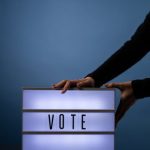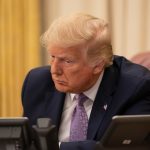Coca-Cola appears to be prioritizing political correctness over customer enjoyment, demonstrating a clear bias in its latest promotional campaign. Recently, the beverage giant introduced a customizable can promotion, allowing consumers to create unique labels featuring their names or phrases. However, it has quickly become clear that not all names are created equal in the eyes of Coca-Cola’s algorithm. The company has inadvertently revealed that it might be more of a fan of Kamala Harris than of Donald Trump.
In a curious twist, consumers were able to successfully create labels featuring Kamala Harris— including variations like “President Harris” and “Harris Walz 2024″—without a hitch. However, when individuals attempted to use Trump’s name, the system categorically rejected the requests for “President Trump” and “Trump Vance 2024.” Apparently, there are discerning limits to what names are deemed acceptable, particularly when they pertain to certain political figures. This blatant double standard raises eyebrows and even engenders suspicion regarding Coca-Cola’s corporate culture.
🚨 BREAKING: The Coca Cola boycott is officially happening.
Their new custom website allows the use of "Harris 2024" but prohibits "Trump 2024" due to it being deemed "political in nature" or "offensive."
This is election interference.
People have also reported that you can… pic.twitter.com/m667mXl4aS
— Jack (@jackunheard) September 25, 2024
The implications of this selective approval raise serious questions about corporate impartiality. One can only speculate about what criteria Coca-Cola is using to decide which political figures are acceptable to display on their labels. Trump, who has publicly professed his fondness for Coca-Cola products, seems to be unwelcome in the world of custom labels. It appears that aligning with the current administration might have its perks while being associated with Trump’s name drives Coca-Cola into a frenzy of censorship.
It’s worth noting that once the discrepancies in political favoritism were brought to Coca-Cola’s attention, the company reacted by tightening its approval processes. This swift change suggests that the company is not just undergoing a random technological glitch but rather hurriedly attempting to cover its tracks in response to public exposure. This left customers questioning the motivations behind the company’s policies, especially when previously accepted phrases suddenly became taboo.
Coca-Cola’s move to eliminate Trump’s custom labels amidst all this is intellectually baffling for a corporation that claims to celebrate customization and individuality. Critics might suggest that the motivation behind such censorship extends beyond algorithm anomalies; it reeks of an attempt to engage in political gatekeeping. By allowing certain names while rejecting others, Coca-Cola has taken a stance that defies the spirit of inclusion it purports to embrace and risks alienating a substantial portion of its customer base.




